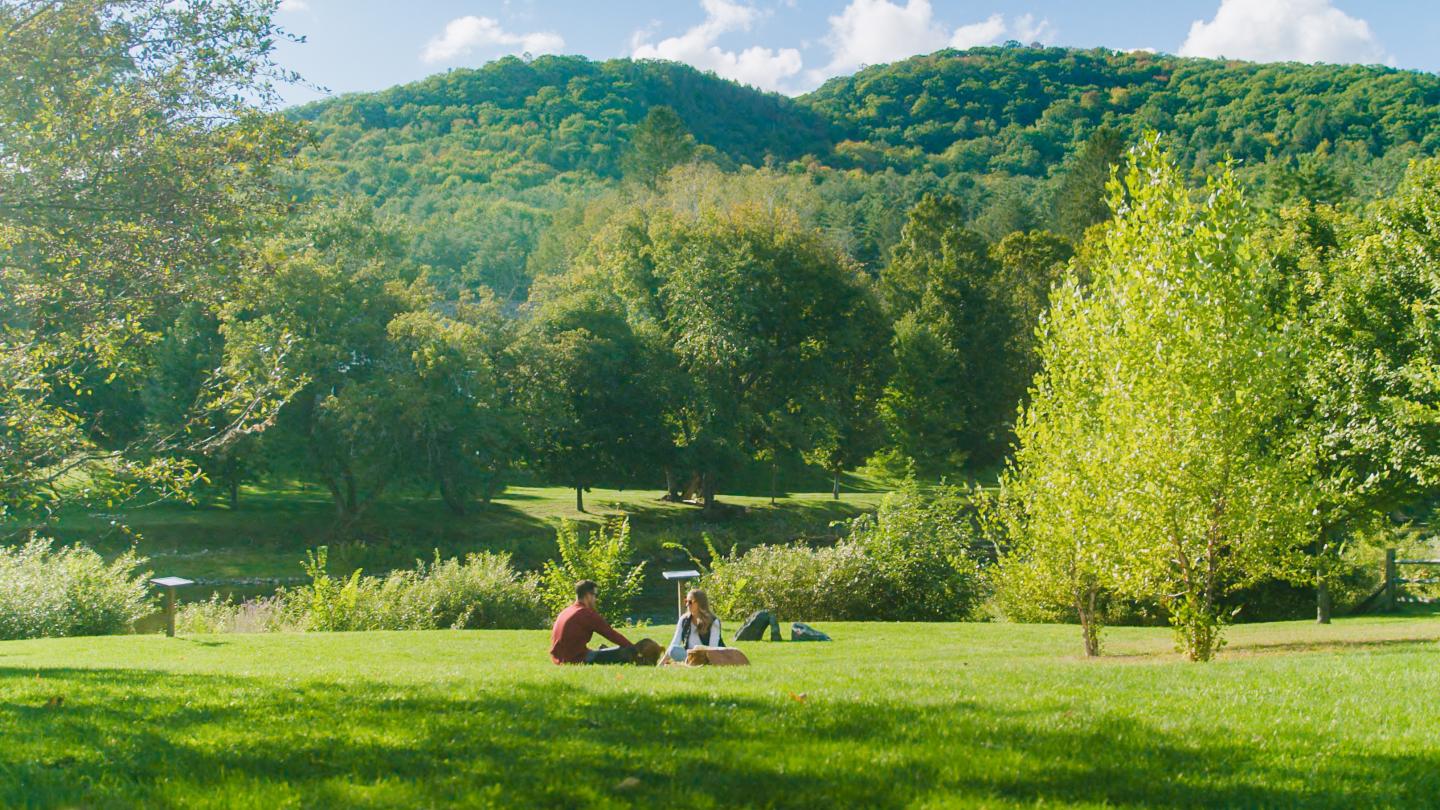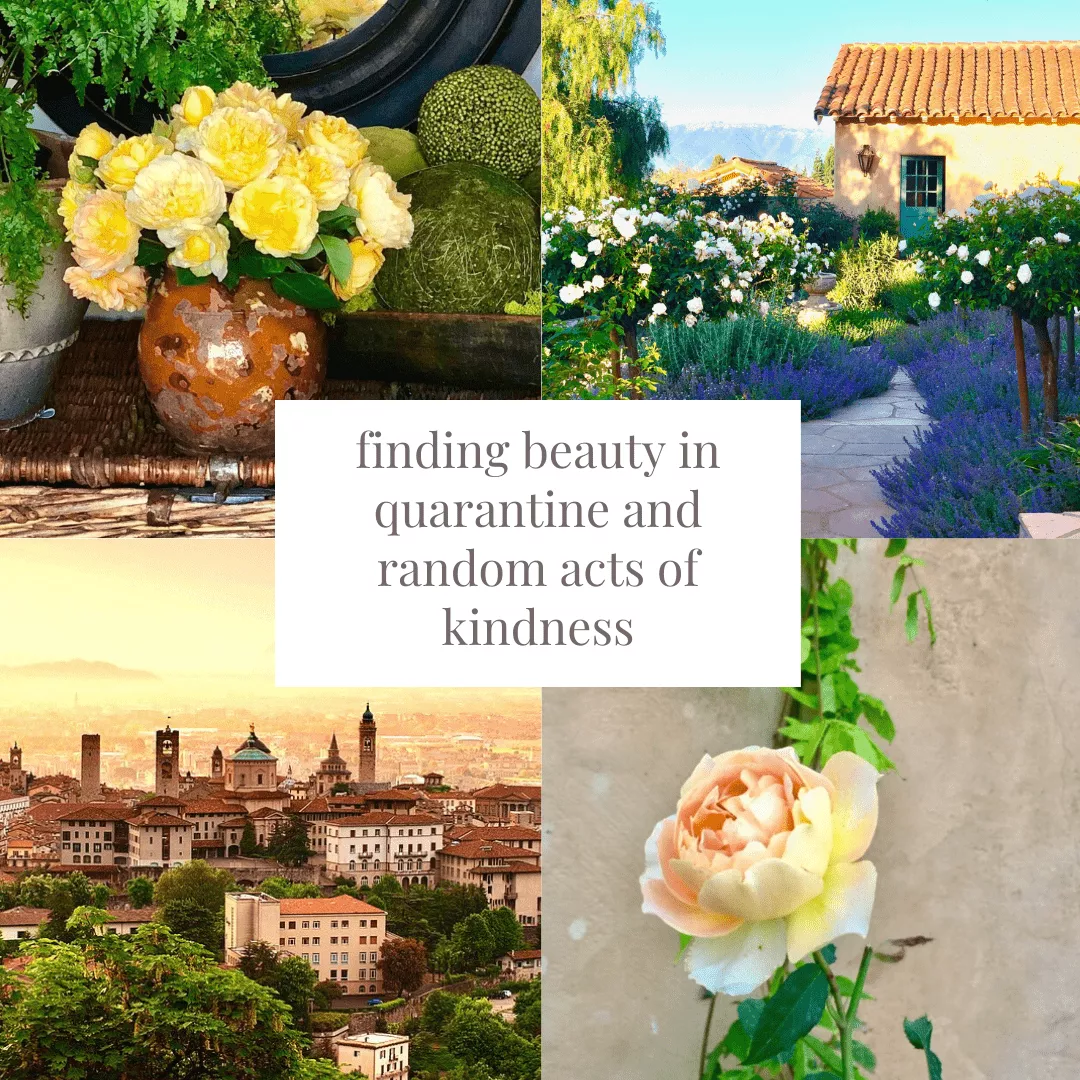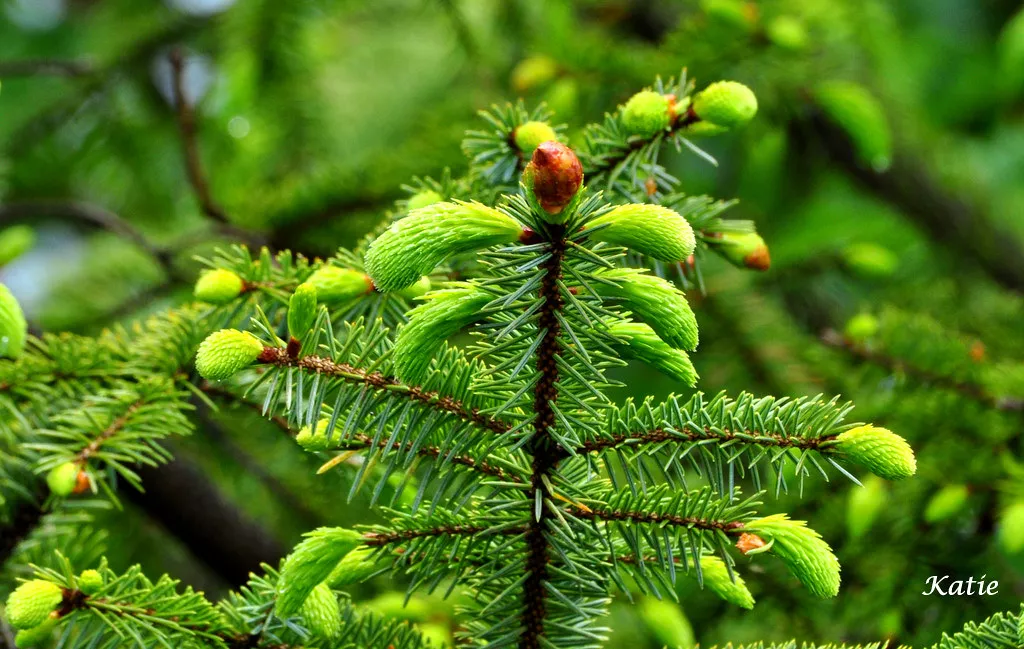Quarantine gardening offers a peaceful escape and a sense of accomplishment. It connects you with nature and boosts mental health.
Quarantine gardening has become a popular hobby for many. As people spend more time at home, gardening provides a soothing and productive outlet. Cultivating plants and flowers can relieve stress and bring joy. It transforms outdoor spaces into personal sanctuaries.
Gardening not only enhances physical health but also improves mental well-being. Digging, planting, and nurturing plants create a sense of achievement. This hobby encourages mindfulness and patience. Beginners can start with easy-to-grow plants. Gardening supplies are widely available online, making it accessible. Embrace quarantine gardening to find peace and happiness in your own backyard.

Credit: churchoftheapostles.net
Introduction To Quarantine Gardening
Quarantine gardening has become a popular hobby during lockdowns. Many people found joy and serenity in their gardens. This new trend brought peace and beauty to many homes. Let’s explore how to start and enjoy quarantine gardening.
Finding Peace In Plants
Plants can bring a sense of calm and happiness. Tending to a garden helps reduce stress. Watching plants grow gives a feeling of accomplishment. The vibrant colors and fresh scents lift the mood. A garden is a peaceful retreat from daily worries.
The Rise Of Home Gardens
More people are starting home gardens now. It is easy and fun. You can grow flowers, vegetables, and herbs. Many started gardening to ensure fresh food at home. Home gardens are small but very rewarding.
| Benefits of Home Gardens |
|---|
| Fresh Produce |
| Stress Relief |
| Physical Exercise |
| Family Bonding |
Here is how you can start:
- Choose a sunny spot.
- Pick easy-to-grow plants.
- Get some basic gardening tools.
- Water and care for your plants daily.
Gardening is a simple way to find joy and calm. Anyone can start with a little effort and care.
Getting Started
Quarantine gardening has become a popular hobby. It brings joy and serenity to many. Starting your garden can seem daunting. Here is a simple guide to help you get started.
Choosing The Right Space
Finding the perfect spot is crucial. Look for a place with good sunlight. Most plants need at least 6 hours of sunlight daily. Ensure the area has good soil drainage. Avoid spots where water pools after rain. If you lack outdoor space, consider indoor gardening. Use window sills or balconies for smaller plants.
Essential Tools And Supplies
Having the right tools makes gardening easier. Here is a list of essential items:
- Gloves – Protect your hands from dirt and sharp objects.
- Hand Trowel – Ideal for digging small holes and planting.
- Pruning Shears – Useful for trimming plants and cutting branches.
- Watering Can – Ensures your plants get the water they need.
- Garden Fork – Helps in loosening soil and removing weeds.
- Soil and Compost – Provides nutrients for your plants.
- Seeds or Seedlings – Choose plants based on your climate and space.
Keep these tools handy. They will make your gardening experience more enjoyable.
Below is a table to help you organize your essential tools and supplies:
| Tool | Purpose |
|---|---|
| Gloves | Protect hands |
| Hand Trowel | Digging small holes |
| Pruning Shears | Trimming plants |
| Watering Can | Watering plants |
| Garden Fork | Loosening soil |
| Soil and Compost | Providing nutrients |
| Seeds or Seedlings | Planting |
Starting your garden with these basics will set you up for success. Happy gardening!
Selecting Plants
Selecting plants for your quarantine garden can be exciting and therapeutic. The right choice can bring joy and serenity to your space. Consider your climate, garden size, and personal preferences when selecting plants.
Best Plants For Beginners
Starting with easy-to-grow plants can boost your confidence. Here are some top choices:
- Tomatoes – They grow quickly and provide delicious fruits.
- Mint – A hardy herb that thrives in many conditions.
- Sunflowers – Bright and cheerful flowers that are easy to grow.
- Radishes – Fast-growing and perfect for first-time gardeners.
- Lavender – Adds fragrance and beauty to any garden.
Edible Vs. Ornamental
Deciding between edible and ornamental plants depends on your goals. Here are some considerations:
| Edible Plants | Ornamental Plants |
|---|---|
|
|
Both types of plants can bring joy. Choose what fits your lifestyle and space best. Happy gardening!
Planting Techniques
Quarantine gardening has become a popular hobby. It helps people find joy and serenity. Learning the right planting techniques is essential. This section covers the basics. We will discuss soil preparation and seed starting tips.
Soil Preparation
Healthy plants need good soil. Start by testing your soil. Use a soil testing kit from a garden store. This helps you know its pH level. Most plants prefer a pH between 6 and 7.
Next, prepare the soil by removing weeds and rocks. Use a hoe or a garden fork. Then, add compost to enrich the soil. Compost provides essential nutrients. Mix it well into the soil.
Good soil structure is also important. It should be loose and crumbly. This allows roots to grow easily. If your soil is heavy clay, add sand to improve drainage.
Consider using raised beds. They provide better soil control. Raised beds also reduce soil compaction. This can make your gardening experience more enjoyable.
Seed Starting Tips
Starting seeds indoors can be fun. It also extends your growing season. Here are some tips to get you started:
- Choose the right containers. Use small pots or seed trays. Make sure they have drainage holes.
- Use a seed starting mix. This is lighter than regular soil. It helps seeds sprout better.
- Plant seeds at the correct depth. Check the seed packet for instructions. Usually, the depth is twice the seed’s diameter.
- Keep the soil moist but not soggy. Use a spray bottle to mist the soil. This prevents over-watering.
- Provide enough light. Place seedlings near a sunny window. You can also use grow lights if needed.
- Maintain the right temperature. Most seeds germinate best at 65-75°F (18-24°C).
Remember to thin seedlings. This means removing weaker plants. It allows the stronger ones to grow better. Transplant seedlings outdoors when they are ready. Wait until the risk of frost has passed.
By following these techniques, you can enjoy a thriving garden. Happy gardening!
Maintaining Your Garden
Taking care of your garden is crucial for its health and beauty. Proper maintenance helps your plants thrive and brings you joy. Let’s explore key aspects of garden maintenance.
Watering Guidelines
Watering your garden correctly is essential. Too much or too little water can harm plants. Follow these simple tips:
- Water early in the morning or late in the evening.
- Check soil moisture before watering. Use your finger to test.
- Water the base of plants, not the leaves.
- Use a watering can or drip irrigation system.
For a more detailed watering schedule, see the table below:
| Plant Type | Watering Frequency | Amount of Water |
|---|---|---|
| Vegetables | Daily | 1-2 inches |
| Flowers | Every 2 days | 1 inch |
| Shrubs | Twice a week | 1-2 inches |
Pest Control Methods
Pests can damage your garden. Use these methods to control them:
- Inspect plants regularly for signs of pests.
- Remove pests by hand if possible.
- Use natural pest repellents like neem oil.
- Introduce beneficial insects like ladybugs.
Here are some common pests and their natural predators:
| Pest | Natural Predator |
|---|---|
| Aphids | Ladybugs |
| Spider mites | Predatory mites |
| Caterpillars | Parasitic wasps |
Keeping your garden healthy brings you joy and peace. Happy gardening!
Benefits Of Gardening
Gardening during quarantine has become a popular way to find joy and serenity. There are many benefits of gardening that can enhance your life. From physical health perks to mental well-being, gardening offers a holistic approach to wellness.
Physical Health Perks
Gardening is a great way to stay active. It involves movements like digging, planting, and weeding. These activities can help you burn calories and build strength. Here are some physical health benefits of gardening:
- Improves cardiovascular health
- Increases flexibility and strength
- Helps in weight management
- Boosts immune system
Working in the garden can also improve hand-eye coordination. This is especially helpful for older adults. Spending time outside can increase your vitamin D levels too. This vitamin is essential for bone health and immune function.
Mental Well-being
Gardening can have a positive impact on your mental health. It reduces stress and promotes relaxation. Here are some ways gardening can improve mental well-being:
- Reduces anxiety and depression
- Improves mood and focus
- Provides a sense of accomplishment
- Encourages mindfulness and presence
Engaging with nature can help you feel more connected to the world. This connection can foster a sense of peace and calm. Gardening also offers a creative outlet. You can express yourself through the design and care of your garden.
Overall, gardening offers both physical and mental health benefits. It is an activity that can enrich your life in many ways.
Creative Garden Ideas
During quarantine, gardening can be a peaceful hobby. It brings joy and calm. You don’t need a big yard. Even small spaces can bloom. Let’s explore some creative garden ideas to brighten your days.
Vertical Gardens
Vertical gardens are perfect for small spaces. They make use of walls and fences. You can grow flowers, herbs, and vegetables. Here are some ideas:
- Hanging pots from hooks
- Using old pallets as planters
- Attaching small pots to a wooden frame
These vertical garden ideas save space and look beautiful. They are also easy to maintain.
Container Gardening
Container gardening is flexible and fun. You can move pots around. This is great for balconies and patios. Some common containers include:
| Container Type | Best For |
|---|---|
| Clay Pots | Herbs and Flowers |
| Plastic Pots | Vegetables |
| Wooden Boxes | Mixed Plants |
Choose the right container for your plants. Ensure they have drainage holes. This will keep your plants healthy and happy.
Community And Sharing
In times of quarantine, many have turned to gardening. It has become a source of joy and serenity. One of the most heartwarming aspects is the sense of community and sharing. Connecting with fellow gardeners and sharing your harvest can be very rewarding.
Connecting With Fellow Gardeners
Gardening brings people together. You can join local gardening clubs. These clubs often hold online meetings and forums. Share tips, ask questions, and learn from others.
Social media also plays a big role. Platforms like Facebook and Instagram have gardening groups. Here, you can post photos, share stories, and find inspiration.
Don’t forget about your neighbors. A friendly chat over the garden fence can make a big difference. Share your gardening experiences and learn from each other. Building these connections can lead to lasting friendships.
Sharing Your Harvest
Sharing your produce is a wonderful way to spread joy. You can create a small table outside your home. Label it “Free Veggies” and leave your extra produce there. Neighbors will appreciate the gesture.
Another option is to donate to local food banks. Fresh produce is often in high demand. Your garden’s bounty can help those in need.
Here is a simple table to show how you can share your harvest:
| Method | Benefits |
|---|---|
| Community Table | Encourages neighborly bonds |
| Food Banks | Helps those in need |
| Local Markets | Supports local economy |
Sharing your harvest fosters a sense of community. It brings people together and spreads happiness. Don’t hesitate to share what you grow.
Adapting To Seasons
Gardening during quarantine can be an incredible source of joy and serenity. One key aspect of successful gardening is adapting to seasons. Knowing how to adjust your gardening techniques throughout the year ensures that your garden thrives no matter the season.
Seasonal Planting
Understanding seasonal planting is crucial. Different plants thrive at different times of the year. Here is a simple table to guide you:
| Season | Plants to Grow |
|---|---|
| Spring | Tomatoes, Cucumbers, Peppers |
| Summer | Beans, Corn, Squash |
| Fall | Broccoli, Cauliflower, Kale |
| Winter | Garlic, Onions, Spinach |
Protecting Plants In Winter
Winter can be harsh on your garden. It’s important to know how to protect your plants during this cold season.
- Mulching: Apply a thick layer of mulch around plants to insulate the soil.
- Covering: Use garden fabric or cloches to shield plants from frost.
- Watering: Water plants thoroughly before the first freeze.
These simple steps help ensure your garden remains healthy and productive all year round. Quarantine gardening can be a delightful way to stay engaged and find peace, no matter the season.

Credit: www.woodstockvt.com

Credit: www.agoda.com
Frequently Asked Questions
What Are The Benefits Of Quarantine Gardening?
Quarantine gardening offers physical exercise, stress relief, and mental well-being. It also provides fresh produce and a sense of accomplishment.
How Do I Start A Small Garden At Home?
Begin with easy-to-grow plants like herbs or vegetables. Use containers or small plots. Ensure proper sunlight and water.
Which Plants Are Best For Beginners?
Herbs like basil, mint, and vegetables like tomatoes and lettuce are beginner-friendly. They require minimal care.
How Can Gardening Reduce Stress?
Gardening involves physical activity and nature exposure, which lower stress hormones. It promotes relaxation and mindfulness.
Conclusion
Finding joy and serenity in the garden during quarantine has numerous benefits. Gardening reduces stress and boosts mental health. It also provides a sense of accomplishment and connection with nature. Start small, enjoy the process, and watch your garden flourish.
Embrace the tranquility and joy that gardening can bring to your life.



